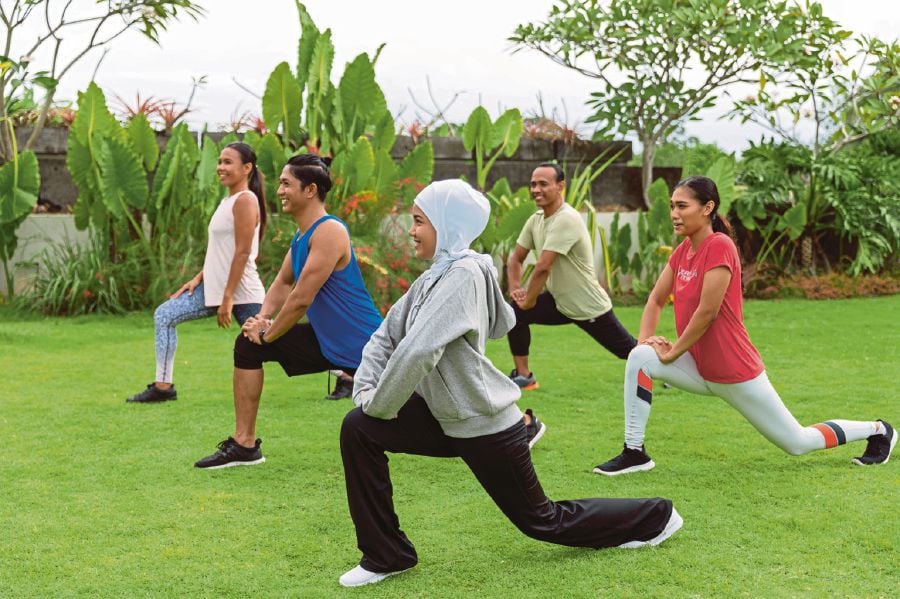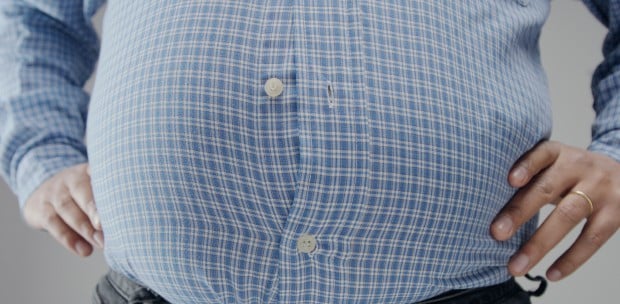WE hear a lot about the importance of wearing sunscreen — that if we don't protect ourselves from the sun, we could get sunburn, age prematurely and of course, the risk of skin diseases.
UVA and UVB are two very different types of radiation that can damage skin. To make it simple, remember UVA — A for Ageing, as these are the rays that age your skin, and UVB — B for Burning, as these are the rays that burn your skin.
Because UVA rays pass easily through the ozone layer, they make up the majority of exposure. UVA rays can pass through clouds, glass and even some clothing. You might not be able to feel it, but it will affect your skin.
UVB rays are responsible for sunburns and cataracts, and they can affect the immune system. Most importantly, UVB rays also contribute to skin diseases.
When purchasing sunscreen products, always look for "broad spectrum protection" on the label to ensure that you are protected against both UVA and UVB rays.

CHOOSING SPF
SPF products come in various levels, such as SPF15, SPF30 or SPF50.
If your skin starts to redden after just 10 minutes of sun exposure, you should take that 10 minutes and multiply it by the SPF number you're using.
For example, if you're using a SPF 30 product, multiple 30 by 10 and you get 300 minutes. So, the result will be around five hours of standard sun protection for a SPF 30 product.
But if you're at the beach or in direct sunshine for extended periods, always be cautious with sunscreen and your chosen sun protection factor. Many products are not water-resistant, so you wouldn't be able to rely on five hours of protection if you're swimming or exercising.
Also, most sunscreens are intended for normal everyday sun exposure, not a full day in direct sun.
At the beach or while exercising in the sun, you should consider a water-resistant sunscreen. And always apply and reapply.
The proper amount of sunscreen needed for your body is about 30ml. You would need a teaspoon (5g) just for your face.
Remembering to apply sunscreen to your face, arms and legs is easy, but it's important to protect every exposed area of the skin.
The most commonly missed spots include your ears, the tops of your feet, back of the neck, lips, hairline and any bald spots and around the armholes.
Apply sunscreen at least 30 minutes before going out into the sun. Try to reapply every two hours and more frequently if you're swimming or sweating.
You should also wear protective clothing such as long-sleeved shirts, long pants and wide-brimmed hats. Wear sunglasses that provide UVA and UVB protection too. Not only can your eyelids burn, but exposure to UVB rays also can lead to cataracts.

Common Sun Protection Questions
If I have darker skin, do I still need sunscreen?
Yes, no matter how dark or light-skinned you are, sunscreen is important. Everyone's skin is subject to burning, premature ageing or developing a skin disease if left unprotected.
If my make-up has SPF, do I need more sunscreen?
Fundations, blush and bronzing powders all seem to contain SPF these days, but it isn't enough. You can opt for a daily moisturiser with SPF 30 broad spectrum protection. You'll get added moisture and protection in one easy step.
Are children's sunscreens different from adults?
Sunscreens contain the same active ingredients whether they're for kids or adults. If you're looking at two products labelled with the same sun protection factor, whether for kids or adults, the protection is about the same. However, many sunscreens made for children have been developed for more sensitive skin. Also, products for kids are tear-free to avoid any stinging of the eyes.
Is sunscreen necessary if it's cloudy?
UV rays can penetrate through clouds, so make sure to wear sunscreen before you head outdoors. Don't think you're protected inside your car or looking out a window either. The sun's rays can penetrate glass, so protect yourself even if you're not in direct sunlight.
WHAT DO THEY MEAN?
SPF products come in many forms, from cosmetics to clothing. Regardless of weather or season, when you're outdoors, you should be conscious of damaging UVA and UVB rays. We often see these acronyms, but what do they mean?
SPF
Sun Protection Factor
UVA
Ultra-Violet A (long wave)
UVB
Ultra-Violet B (short wave)
*The writer is director, worldwide nutrition product training and education, Herbalife.
Make sure to stock up on your sun protection needs by using this Shopee promo code.




